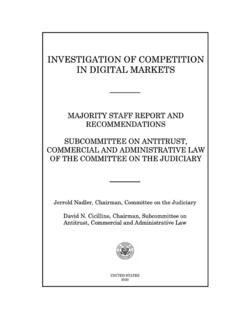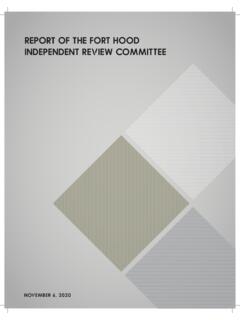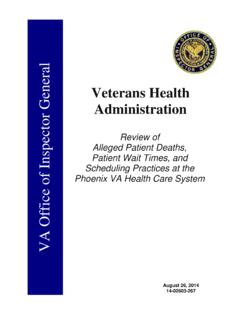Transcription of Report on Preliminary Examination Activities (2020)
1 Le Bureau du Procureur The Office of the Prosecutor Report on Preliminary Examination Activities 2020. 14 December 2020. Report on Preliminary Examination Activities 2020. 14 December 2020. TABLE OF CONTENTS. INTRODUCTION. I. SITUATIONS UNDER PHASE 1 .. 9. II. SITUATIONS UNDER PHASE 2 (SUBJECT-MATTER JURISDICTION) .. 21. BOLIVIA .. 21. VENEZUELA II .. 24. III. SITUATIONS UNDER PHASE 3 (ADMISSIBILITY) .. 27. COLOMBIA .. 27. GUINEA .. 40. REPUBLIC OF THE PHILIPPINES .. 45. VENEZUELA I .. 50. IV. COMPLETED Preliminary EXAMINATIONS .. 55. 55. IRAQ/UK .. 59. NIGERIA .. 64. UKRAINE .. 68. 2. INTRODUCTION. 1. The Office of the Prosecutor ( Office or OTP ) of the International Criminal Court ( Court or ICC ) is responsible for determining whether a situation meets the legal criteria established by the Rome Statute ( Statute ) to warrant investigation by the Office.
2 For this purpose, the OTP conducts a Preliminary Examination of all communications and situations that come to its attention based on the statutory criteria and the information available in accordance with its Policy Paper on Preliminary 2. The Preliminary Examination of a situation by the Office may be initiated on the basis of: (i) information sent by individuals or groups, States, intergovernmental or non-governmental organisations; (ii) a referral from a State Party or the United Nations ( UN ) Security Council; or (iii) a declaration lodged by a State accepting the exercise of jurisdiction by the Court pursuant to article 12(3) of the Statute. 3. Once a situation is thus identified, the factors set out in article 53(1) (a)-(c) of the Statute establish the legal framework for a Preliminary This article provides that, in order to determine whether there is a reasonable basis to proceed with an investigation into the situation, the Prosecutor shall consider: jurisdiction (temporal, either territorial or personal, and material); admissibility (complementarity and gravity); and the interests of justice.
3 4. Jurisdiction relates to whether a crime within the jurisdiction of the Court has been or is being committed. It requires an assessment of (i) temporal jurisdiction (date of entry into force of the Statute, namely 1 July 2002 onwards, date of entry into force for an acceding State, date specified in a UN Security Council referral, or in a declaration lodged pursuant to article 12(3) of the Statute); (ii) either territorial or personal jurisdiction, which entails that the crime has been or is being committed on the territory or by a national of a State Party or a State not Party that has lodged a declaration accepting the jurisdiction of the Court, or arises from a situation referred by the UN Security Council; and (iii) subject-matter jurisdiction as defined in article 5 of the Statute (genocide; crimes against humanity; war crimes, and aggression).
4 5. Admissibility comprises both complementarity and gravity. 6. Complementarity involves an Examination of the existence of relevant national proceedings in relation to the potential cases being considered for investigation by the Office. This will be done bearing in mind the Office's prosecutorial strategy of investigating and prosecuting those most responsible for the most serious 1 See ICC-OTP, Policy Paper on Preliminary Examinations, November 2013. 2 See also rule 48, ICC Rules of Procedure and Evidence ( Rules ). 3. Where relevant domestic investigations or prosecutions exist, the Office will assess their genuineness. 7. Gravity includes an assessment of the scale, nature, manner of commission of the crimes, and their impact, bearing in mind the potential cases that would likely arise from an investigation of the situation. 8. The interests of justice is a countervailing consideration.
5 The Office must assess whether, taking into account the gravity of the crime and the interests of victims, there are nonetheless substantial reasons to believe that an investigation would not serve the interests of justice. 9. There are no other statutory criteria. Factors such as geographical or regional balance are not relevant criteria for a determination that a situation warrants investigation under the Statute. As the Office has previously observed, feasibility is not a separate factor under the Statute as such when determining whether to open an investigation . Weighing feasibility as a separate self-standing factor, moreover, could prejudice the consistent application of the Statute and might encourage obstructionism to dissuade ICC intervention .4 As long as universal ratification is not yet a reality, crimes in some situations may fall outside the territorial and personal jurisdiction of the ICC.
6 This can be remedied only by the relevant State becoming a Party to the Statute or lodging a declaration accepting the exercise of jurisdiction by the Court or through a referral by the UN Security Council. 10. As required by the Statute, the Office's Preliminary Examination Activities are conducted in the same manner irrespective of whether the Office receives a referral from a State Party or the UN Security Council, or acts on the basis of information on crimes obtained pursuant to article 15 of the Statute. In all circumstances, the Office analyses the seriousness of the information received and may seek additional information from States, organs of the UN, intergovernmental and non-governmental organisations and other reliable sources that are deemed appropriate. The Office may also receive oral testimony at the seat of the Court.
7 All information gathered is subjected to a fully independent, impartial and thorough analysis. 11. It should be recalled that the Office does not possess investigative powers at the Preliminary Examination stage. Its findings are therefore Preliminary in nature and may be reconsidered in the light of new facts or evidence. The Preliminary 3 See OTP Strategic Plan 2019-2021, para. 24. When appropriate, the Office will consider bringing cases against notorious or mid-level perpetrators who are directly involved in the commission of crimes, to provide deeper and broader accountability and also to ultimately have a better prospect of conviction in potential subsequent cases against higher-level accused. 4 ICC-OTP, Policy Paper on Preliminary Examinations, November 2013, Contrast ICC-OTP, Policy paper on case selection and prioritisation, 15 September 2016, paras.
8 50-51 noting that, in the light of the broad discretion enjoyed in deciding which cases to bring forward to investigation and prosecution, the Office may consider a range of strategic and operational prioritisation factors, 4. Examination process is conducted on the basis of the facts and information available. The goal of this process is to reach a fully informed determination of whether there is a reasonable basis to proceed with an investigation . The reasonable basis' standard has been interpreted by Pre-Trial Chamber ( PTC ) II. to require that there exists a sensible or reasonable justification for a belief that a crime falling within the jurisdiction of the Court has been or is being committed' .5 In this context, PTC II has indicated that all of the information need not necessarily point towards only one conclusion. 6 This reflects the fact that the reasonable basis standard under article 53(1)(a) has a different object, a more limited scope, and serves a different purpose than other higher evidentiary standards provided for in the Statute.
9 7 In particular, at the Preliminary Examination stage, the Prosecutor has limited powers which are not comparable to those provided for in article 54 of the Statute at the investigative stage and the information available at such an early stage is neither expected to be comprehensive' nor conclusive'. 8. 12. Before making a determination on whether to initiate an investigation , the Office also seeks to ensure that the States and other parties concerned have had the opportunity to provide the information they consider appropriate. 13. There are no timelines provided in the Statute for a decision on a Preliminary Examination . The Office takes no longer than is necessary to complete a thorough assessment of the statutory criteria to arrive at an informed decision. At the same time, as noted below at paragraph 17, the Office has taken several measures in recent years to enhance the efficiency of Preliminary Examination process, which it will continue to foster.
10 Moreover, to avoid Preliminary examinations remaining under consideration for long periods without an outcome, the Office has adopted the approach of articulating its findings as early as possible in the process. This includes providing communication senders a detailed reasoning of the Office findings in Phase 1 communications that are dismissed, to enable early identification of relevant factual and/or legal gaps, as well as to facilitate a more focussed reconsideration request in any subsequent submission under article 15(6). In some situations, the Office has in recent years sought rulings from the Pre-Trial Chamber to resolve complex jurisdictional questions that have arisen during Preliminary examinations, whose resolution is necessary to progress to the 5 Situation in the Republic of Kenya, Decision Pursuant to Article 15 of the Rome Statute on the Authorization of an investigation into the Situation in the Republic of Kenya , ICC-01/09-19-Corr, 31.
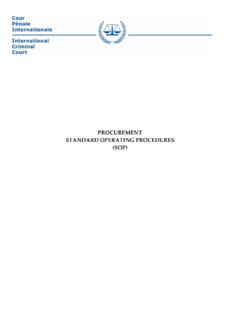
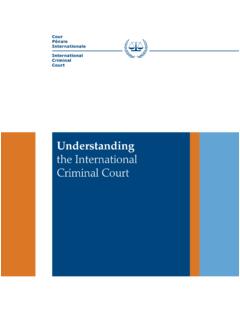
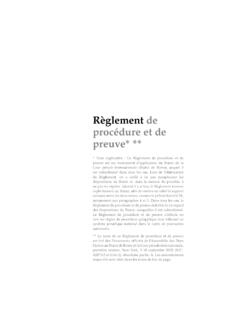
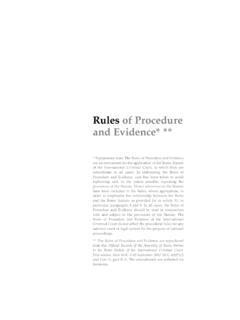
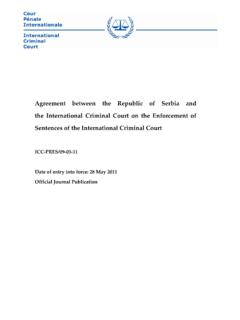
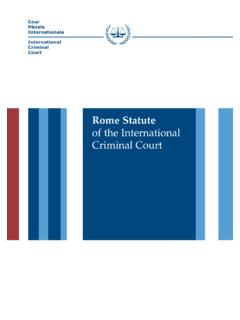
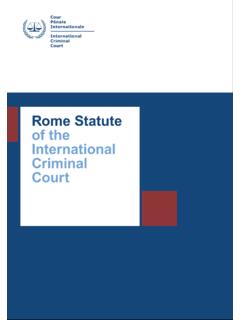
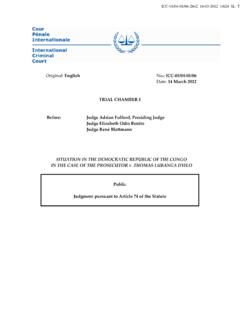
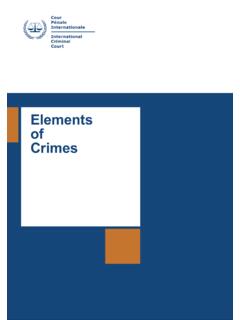
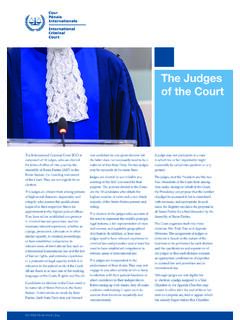

![D Operation Hotton [DSI] Investigation name](/cache/preview/0/b/d/b/b/6/9/c/thumb-0bdbb69c34cc13cb8340b3c5b4885c63.jpg)

